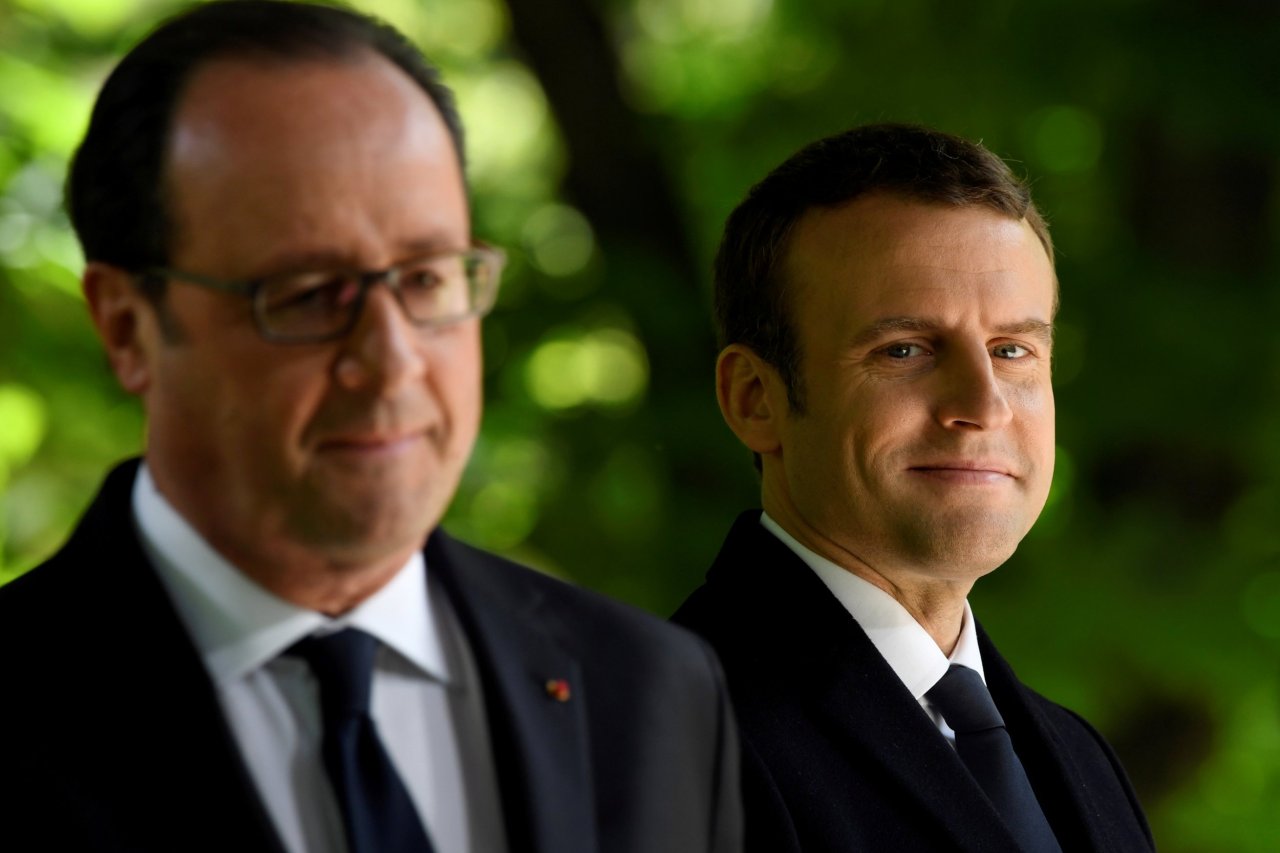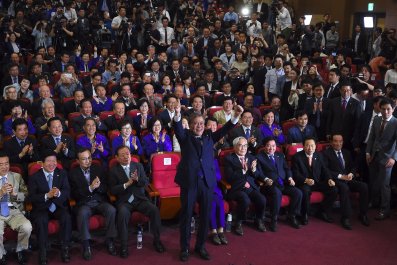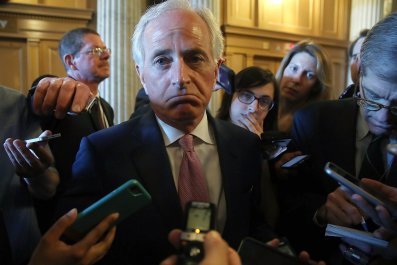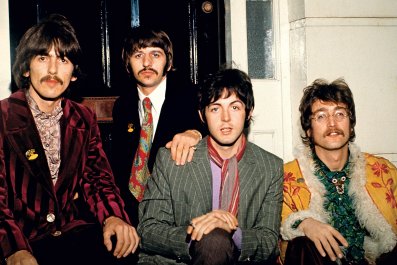It looked like a coup for French President-elect Emmanuel Macron 's new party, Republic on the Move. On May 9, Manuel Valls, a former prime minister under outgoing Socialist President François Hollande, announced he would join its ranks as a parliamentary candidate.
But a day later, Republic on the Move officials said they wouldn't have him. It was a remarkable political put-down, especially since Macron served in Hollande's government. But it highlights the formidable challenge Macron faces as he seeks to convince the voters who elected him to abandon their parties and give Republic on the Move a majority in France's Parliament.
Republic on the Move, or Republique en Marche (and until this month, simply En Marche!), was formed a year ago and had never contested a national election before the presidential one earlier this month. Now, it needs to win a parliamentary election for the first time by courting a coalition of centrist voters, many of whom voted for Macron because they saw him as the only viable alternative against the far-right's Marine Le Pen.
The stakes for the parliamentary election could not be higher. Macron ran as a reformer. He wants to shake up France's labor market and welfare system, push through new pro-business policies and boost public investment in renewable energy, along with other ambitious plans. But for a president to govern effectively in France, he needs the support of the prime minister, who, politically, has to come from the majority party in Parliament. Failure to win Parliament could make it very difficult—if not impossible—for Macron to keep his election promises.
On May 10, the new party faced its first political test since Macron won the presidency. Republic on the Move announced 428 of its candidates standing for the French National Assembly's 577 seats, whittled down from about 19,000 applications. The party was set to announce the others in the days after this article went to press.
Getting the list right was difficult. Macron is doing an unprecedented thing in modern French politics—unusual, really, for any political system—by creating a brand-new party from scratch out of a list of candidates it must pull from established parties and from outside politics.
The selection committee, independent of Macron, had to compile a list encompassing not only left and right, but also novelty and experience; Macron had pledged that 50 percent of his party's candidates would not be politicians. Among the fresh faces are Marie Sara, a retired female bullfighter, and Cédric Villani, a celebrity mathematician whose sweeping hair and beard make him look more like a courtier to Louis XIV than a 21st-century lawmaker. Of the first 428 candidates, 214 are women and 214 are men, sticking to a Macron campaign pledge to achieve gender parity in his parliamentary party. In the end, even Valls was treated with delicacy: He is not on the party's list, but Republic on the Move will not run a candidate against him.
While the list will shake up the staid French political scene, problems following its announcement quickly revealed just how hard it is to create a political party on short notice. François Bayrou, head of the centrist Democratic Movement party that is allied to Republic on the Move, reacted furiously when only 35 out of the 428 names on the list were drawn from his party. One candidate, Thierry Robert, a member of Parliament for the Democratic Movement, originally appeared on the list but was removed after an alleged 2016 sentencing for political defamation emerged in the French press. Robert has insisted he has a "clean criminal record." The controversy had not been resolved by press time. Some candidates, including Mourad Boudjellal, the president of Toulon rugby club, said they had been included on the list despite not wanting to run.
But whatever the setbacks, Republic on the Move's most important challenge is convincing the large number of center-right Republican party voters who backed Macron in the presidential election to vote for them again, rather than returning to their old party.
According to the pollster Ipsos France, 48 percent of people who voted for the Republican candidate François Fillon in the first round of the presidential election moved to Macron in the second round after Fillon was knocked out. But many of the voters who are ideologically right-wing may have chosen Macron only because Fillon's campaign was ruined by a financial scandal—and may be less likely to choose a parliamentary candidate from Macron's new party.
Jérôme Grand d'Esnon, a Republican senior operative who defected to advise Macron in February, says Republic on the Move rejected the left-wing Valls to appeal to the voters on the right. Because Macron served in François Hollande's government as economy minister, and because much of his early support came from Socialists, it's on Macron to prove that Republic on the Move is more than just a Socialist Party rebrand. "The real danger for Macron is that his new party could be considered as the new left-wing party," Grand d'Esnon says.
To secure their voters, Republic on the Move has made overtures to Republican candidates to make the leap over to its side. But at the time of writing, its candidate list included 24 Socialists but no Republican lawmakers. Still, the party was in negotiations with an undisclosed number of right-wingers at the time Newsweek went to press, who may form some of the remaining candidates.
As a politician who positioned himself outside French political tradition, Macron will see his presidency defined for the foreseeable future by the opening weeks of his tenure, and he can't put a foot wrong. Speaking on May 10, Hollande, whose time in office was characterized by missed opportunities and indecision, addressed his successor directly. "There is still much to be done…Mr. President," he said. For once, nobody could disagree with him.
















